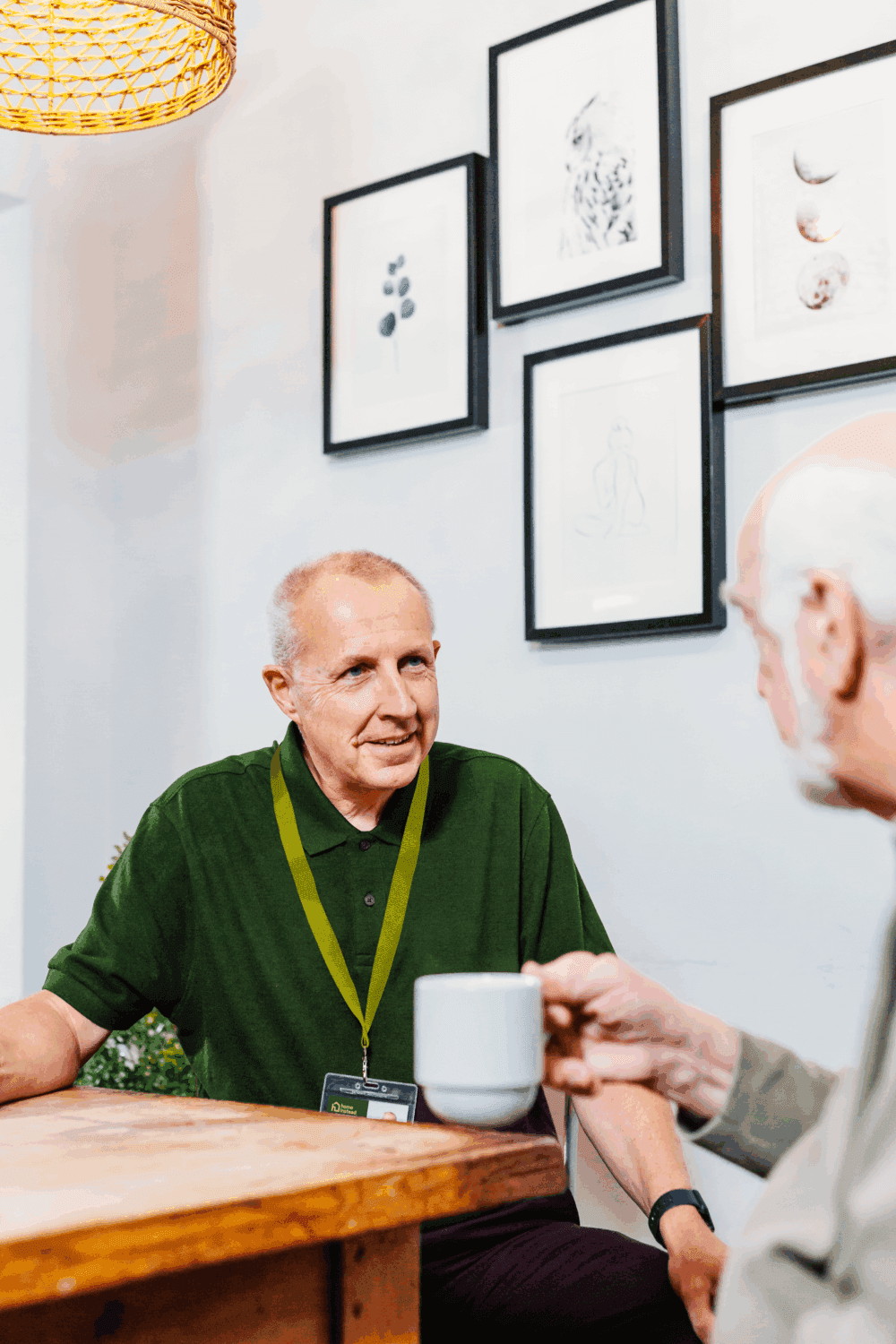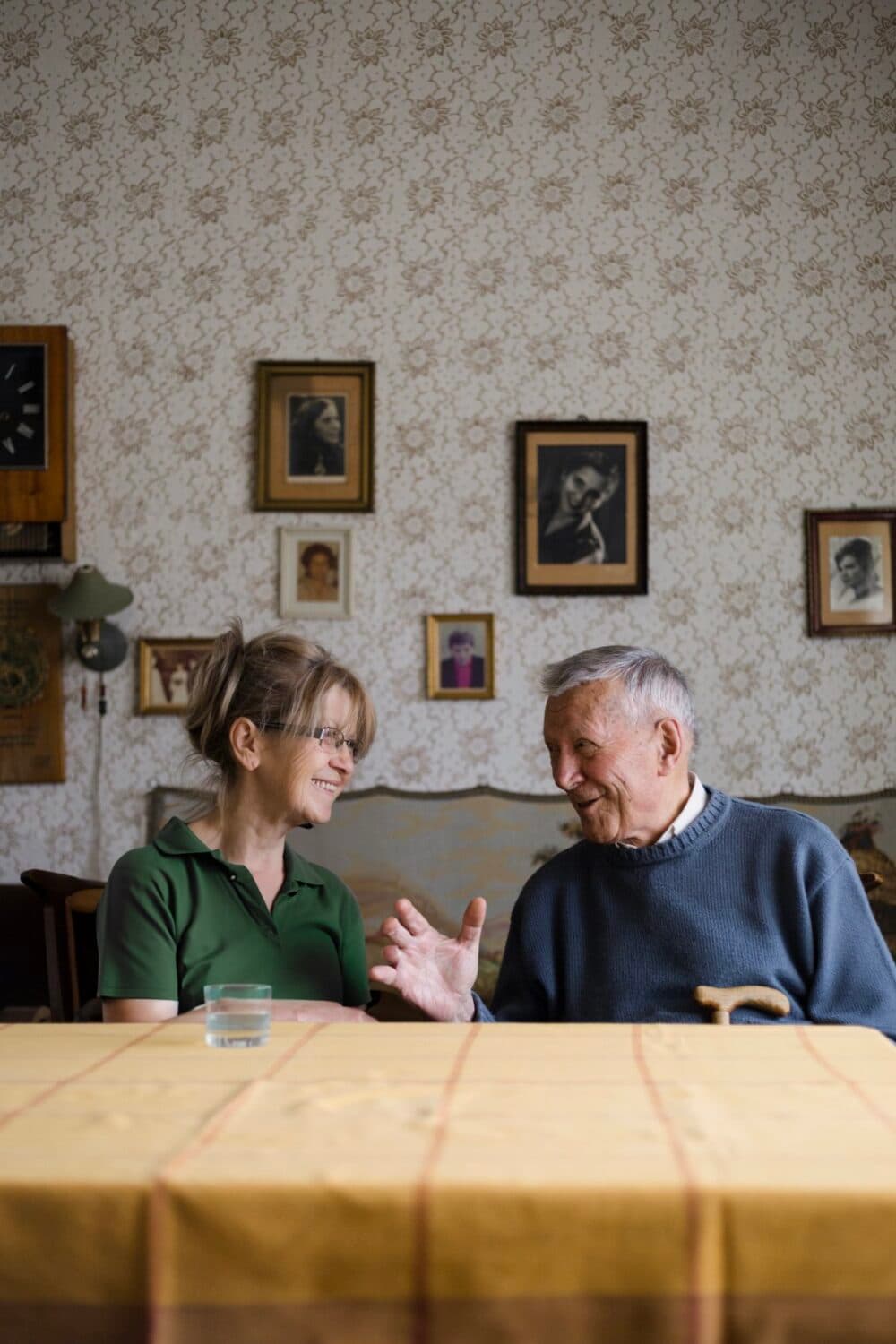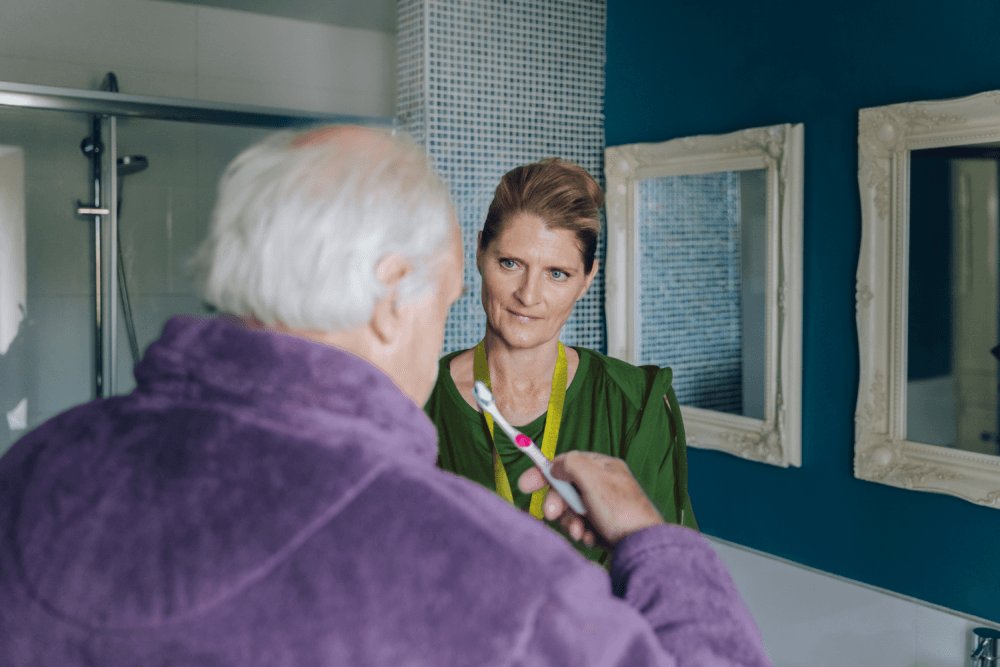Are Next of Kin Responsible for Care Home Fees? Clearing Up a Common Concern

Have you been told you’ll have to cover a loved one’s care home fees? You’re not alone—many families hear this and worry. But is it actually true?
When someone close to you needs residential care, financial questions are often among the first to arise. Understandably so—care fees can be daunting, and the rules around who pays can feel confusing at best. At Home Instead New Forest, we frequently hear from families who are unsure of their legal and financial standing, especially around the role of next of kin.
Let’s break it down clearly and compassionately.

What Does "Next of Kin" Really Mean?
The phrase “next of kin” usually refers to a person’s closest living relative—this could be a spouse, adult child, sibling, or even a close friend who takes on a supportive role. In the context of social care, the next of kin is often contacted for updates or asked to help make care-related decisions when someone is unable to do so independently.
However, being listed as next of kin does not automatically mean you’re legally responsible for any financial obligations, including care home fees. It’s not a legal status in itself, and it doesn’t give you the authority to make decisions unless you’ve been appointed through a Lasting Power of Attorney (LPA) or have formally agreed to act on someone’s behalf.

Are You Legally Obligated to Pay Care Fees?
This is one of the most common concerns we hear—and the answer is simple:
No, next of kin are not legally required to pay care home fees.
The person who receives the care is the one responsible for their own fees. Family members are not liable unless they’ve signed a legal agreement that states otherwise. This means you are not automatically expected to step in and pay, even if you’re their main point of contact or involved in arranging care.
You could become liable only if you:
- Sign a care contract agreeing to cover the costs
- Act as a guarantor for your relative
- Agree to a third-party top-up (more on this shortly)
Without one of these formal agreements in place, you cannot be held financially accountable.

Who Actually Pays for Care Home Fees?
In England, there are three main ways that care is paid for. The amount someone pays depends on their financial circumstances—not those of their family.
1. Self-Funding Care
If someone has assets over £23,250, they will usually need to pay their own care fees. These assets can include savings, investments, and in most cases, the value of their home.
2. Local Authority Support
If assets are below the £23,250 threshold, the local council may contribute to the cost, following a means test. This financial assessment is based solely on the finances of the person receiving care. The income or savings of next of kin are not included.
3. NHS Continuing Healthcare
If someone’s care needs are primarily health-related, they may be eligible for NHS Continuing Healthcare, which covers all costs. For those needing nursing care in a care home, there’s also NHS-funded nursing care, which provides a contribution to nursing costs.

Understanding the Financial Assessment Process
When local authorities assess someone’s eligibility for financial help, they look at:
- Income (including pensions and benefits)
- Savings and investments
- Property (although certain exclusions apply)
For example, a property may be excluded if it is still lived in by a spouse, partner, dependent child, or a relative over 60 or with a disability.
Based on the results:
- Above £23,250: full self-funding required
- Between £14,250 and £23,250: partial contributions based on income and a sliding scale
- Below £14,250: only income is considered
None of this includes a financial assessment of next of kin.

What About Third-Party Top-Ups?
Sometimes, families prefer a care home that charges more than the local authority is willing to pay. In these cases, a third party—often a family member—may agree to pay the difference. This is called a top-up fee.
If you choose to do this, it must:
- Be agreed in writing
- Be approved by the local authority
- Be sustainable over time
If you enter into such an agreement, you will be responsible for those payments. It’s important to ensure you fully understand what’s involved before agreeing.

What Happens When a Loved One Passes Away?
Outstanding care fees are generally paid from the person’s estate, meaning from their assets, before any inheritance is distributed. If the local authority had paid for care under a Deferred Payment Agreement—where fees are covered by the council and repaid later using the value of the home—this usually needs to be settled within 90 days of death.
Unless you’ve signed something agreeing to contribute, you are not expected to pay anything from your own funds.

What Is a Deferred Payment Agreement?
A Deferred Payment Agreement (DPA) allows someone to delay selling their home to fund care. The local council pays the care fees on their behalf and is repaid later from the sale of the property or from the estate.
To qualify, someone must usually:
- Own a property not lived in by a dependent
- Have savings below the threshold
- Meet other criteria set by the council
This can ease pressure on families and avoid the need for a rushed house sale.

Can Someone Give Away Assets to Avoid Fees?
This is a risky approach. Local councils are alert to attempts to deliberately reduce assets (such as gifting money or transferring property) to avoid care fees. This is called “deprivation of assets,” and councils can still treat the person as if they still own the assets, potentially refusing funding or taking legal action.
Always seek professional financial advice before making decisions like these.

What Role Can Next of Kin Play?
Even if you’re not financially responsible, next of kin can provide meaningful support in other ways, including:
- Helping with care assessments and research
- Arranging legal or financial advice
- Reviewing care home contracts
- Assisting with benefit applications, like Attendance Allowance
- Supporting with the emotional transition into care
These contributions can make a real difference during a time that is often emotionally and practically challenging.

Take Care When Signing Paperwork
If you’re asked to sign documents during the care home admissions process, take time to read them carefully. Be sure of whether you’re signing:
- As a representative (e.g. with Power of Attorney)
- As an emergency contact
- As someone agreeing to pay part of the fees
Never sign anything unless you’re fully confident about what you’re agreeing to. If in doubt, seek legal advice.

Supporting Families Through Every Step
At Home Instead New Forest, we know how emotionally and financially overwhelming arranging care can be. That’s why we focus not only on high-quality care, but also on clear, compassionate advice for families.
Whether you need support navigating local authority processes, understanding care home contracts, or just someone to talk to, we’re here to help—without pressure or obligation.
To find out more or speak with a member of our team, visit homeinstead.co.uk/New-Forest.

Areas We Serve
Lymington, Brockenhurst, New Milton, Totton, Lyndhurst & the surrounding areas.
BH23 8, BH24 4, BH25 5, BH25 6, BH25 7, SO40 2, SO40 3, SO40 4, SO40 7, SO40 8, SO40 9, SO41 0, SO41 3, SO41 5, SO41 6, SO41 8, SO41 9, SO42 7, SO43 7, SO45 1, SO45 2, SO45 3, SO45 4, SO45 5, SO45 6
5 Rashley Mews, High St, Lymington SO41 9AR, UK
01590 637 250